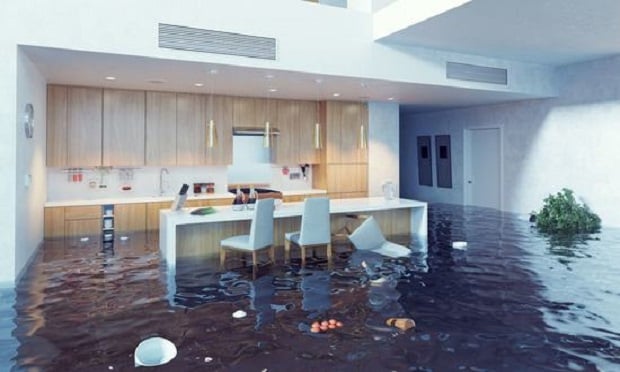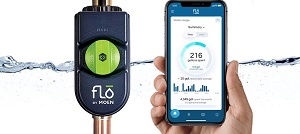 According to the LexisNexis white paper, home water leaks waste more than one trillion gallons of water annually nationwide. (Photo: Shutterstock)
According to the LexisNexis white paper, home water leaks waste more than one trillion gallons of water annually nationwide. (Photo: Shutterstock)From Nest thermostats to internet-connected kitchen appliances, smart home technologies have experienced a wave of innovation and adoption in recent years. Consider how the smart home device market has grown from $15 million in annual revenue in 2017 to more than $23 million in 2019, according to Statista data. Statista also projects that the U.S. market will reach $41 million in revenue by 2023, with 46% of households expected to have at least one smart home device.
It’s undeniable how the Internet of Things (IoT) devices have improved the lives of homeowners worldwide (albeit with a few risks), but they also offer a significant opportunity to insurers that are hopeful the data generated from IoT devices can offer a better understanding of risks.
To uncover how smart home technology can provide real value to the insurance underwriting process, LexisNexis Risk Solutions worked with Flo by Moen to study residential water damage claims.
 (Source: Moen)
(Source: Moen)The research compared the claims activity of 2,306 U.S. homes with a Flo by Moen Smart Water Shutoff leak detection and water monitoring system to similar claims activity for a group of homes of the same geography, price, and size without the system.
“Our results were very enlightening. They point to a strong correlation between the installation of Flo by Moen Smart Water Shutoffs with fewer and lower-severity claims. They also support the broader benefits of smart home technology and smart home insurance programs, for both carriers and consumers,” said Dan Davis, director of IoT and emerging markets at LexisNexis and author of the “Preventing Water Claims: Understanding the value of smart home technology” white paper.
‘Worth the investment’
Water leak damage is one of the most common losses insurance carriers face. In 2019, the insurance industry spent more than $2 billion on water claims for non-weather-related damage, according to the LexisNexis white paper, despite the risk being one of the most preventable for homeowners.
When comparing the water damage claims activity of homeowners with and without the Flo system, two key findings emerged: First, homes with Flo experienced a 96% decrease in paid water leak claims over two years. During the same period, homes without the water leak detection system, or “control group homes,” saw a 10% increase in claims.
Second, while the severity of claims amongst the control group homes remained constant, claim severity decreased 72% in the Flo homes.
Also of interest, homeowners who purchased the Flo system experienced an average pre-installation severity of almost three-times the control group, suggesting that there is a point at which homeowners are willing to invest to stop water losses.
“Although there is still a lot to learn, for homeowners, these devices appear to be worth the investment,” said Davis. “Preventing major losses like these keeps the homeowner out of the claims process, in turn saving them time and money, and offers the promise of future underwriting discounts on their insurance premium. For carriers, including water leak mitigation and shutoff devices as part of smart home strategies could drive adoption of these devices, leading not only to improved customer experience but also reduced loss costs.”
Related:
"smart" - Google News
June 04, 2020 at 04:30PM
https://ift.tt/3ctUVsZ
Smart technology could be the key to preventing water claims - PropertyCasualty360
"smart" - Google News
https://ift.tt/2P2kUhG
https://ift.tt/3febf3M
Bagikan Berita Ini














0 Response to "Smart technology could be the key to preventing water claims - PropertyCasualty360"
Post a Comment